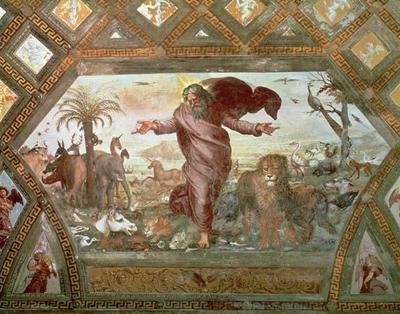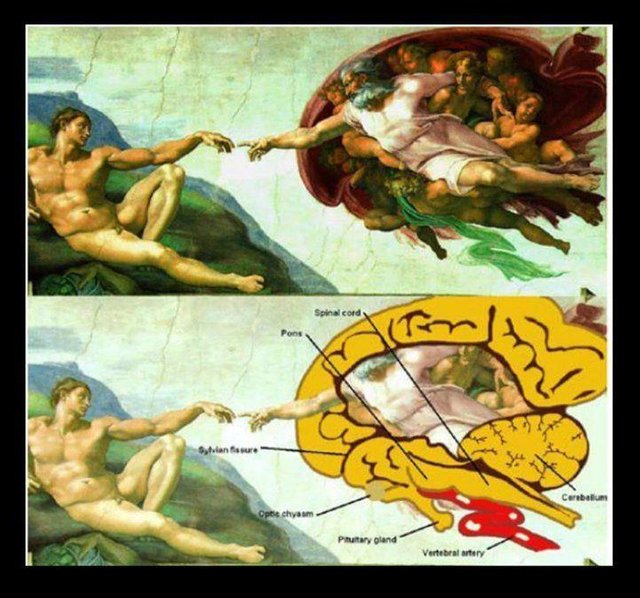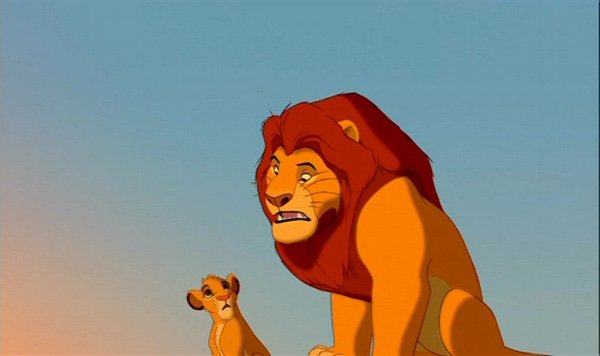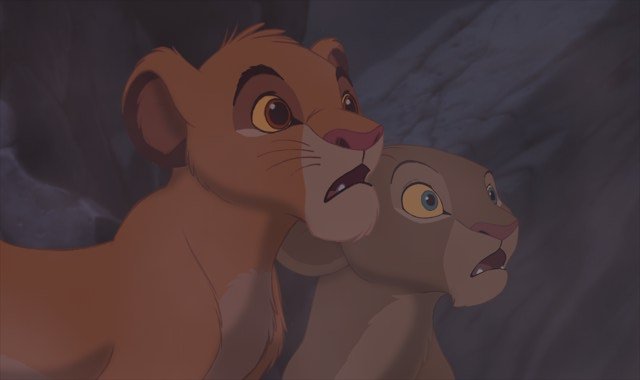Time, Death, and the Garden of Eden (Bible Decoded #2)

Death. The one fate we all share.
Everything that begins in time ends in time. And as humans, we're keenly aware of this (and seemingly no other animal is). So, while we stare down the yawning abyss, just what the hell are we to do about it? The stories of Genesis, and really everything in the Old Testament, is the collective human attempt across thousands of generations to answer just that.
What do the Old Testament, The Lion King, and the Garden of Eden have in common? Let's find out.
So, after we left off, God, who is both a symbol for, and identical to, the Logos; a hybrid of language and reason(an archaic way of saying Truth), creates the world from the chaotic potential of being , just in the same way we use the Logos to manifest our everyday world.
What's interesting is that after everything he creates, the stars in the night sky, the mighty seas, the light of day, and so on, God sees that it is Good.
Not a word in this text exists without reason, and this part is no exception. The insistence here is that whatsoever we create, as long as it comes as a result of reason and Truth, is Good.
I've personally struggled with understanding this. How could God could see everything he creates as Good, given that there is no shortage of pain, misery and death in this world? How can an all powerful, all benevolent being allow life to be so rife with tragedy, and worse yet, in the face of that tragedy, insist that things are all Good? There's much to be said on this topic, but the short answer it seems, is that as awful as things may appear, it is still better that there be something rather than nothing.
We won't get into why the Bible insists that just yet, but suffice it to say that those who assume the opposite (it would be better if there was nothing at all) end up travelling down a narrow and miserable road.

So, God goes about his business, linguistically birthing the universe, and at the end of his work, he creates mankind. In the Old Testament, man and woman come into being simultaneously, and are both created in his image, divinity and all (for those who call the document sexist). So, to be made in the image of the creator means we are born creators ourselves. We too have the Logos, the same power which originally brought the world into being.
This brings closure to the earlier statement:
"And the Word was with God".
Now, it seems, that Word is with us.
And so, man enters the Garden of Eden. And it seems fitting that our ancestral habitat should be a garden, rather than a city, a jungle, a desert, or a cloud. Consider this, why does the Old Testament choose a garden to as the home of the first people? Well, what is a garden? A garden place that is half nature, and half order. Where flora and wildlife can thrive, but under the watchful custody of a higher intelligence, the perfect balance between structure and novelty. (Left brain hemisphere, and Right) So, if our whole planet (and each of our minds) is indeed a garden, then the implication here is that our proper function as intelligent beings is to tend that garden. (Maintain the balance)

(An interesting coincidence.)
So, in the center of Eden is the Tree of Life, and the Tree of the Knowledge of Good and Evil (quite a long name), and with that, God gives Adam free reign of to roam the garden and live has he pleases, with the exception that he and Eve are absolutely not under any circumstances, to even go near the Tree of Knowledge, let alone eat from it, on pain of death.
In the last post, I likened archaic humanity to children, for obvious reasons. Here's another way they're similar. Whenever you tell a child, nay anyone that they are absolutely not to go near something, the first thing that comes to their mind the moment you turn your back is to run right over and figure out just what the hell is so special about that thing you told them to stay away from.

The Lion King does a good job of portraying this when while standing upon pride rock, Mufasa tells Simba he's absolutely not to go beyond the boundaries of his kingdom. Mufasa's kingdom is a pretty big place, (everywhere the light touches in fact) and yet still, mere moments after Mufasa's warning, Simba and Nala foolishly stumble outside of the known land, and into the Elephant graveyard. This is where the pair have their first encounter with death. (hint, hint)
And the result of the first humans' foolishness is very similar.
Enticed by a Serpent, we are convinced that in truth, the Tree of Knowledge will not harm us in any way, and in fact, will make us even wiser. According to the Serpent, the only reason God wants to prevent us from eating the fruit is because he's actually jealous, and doesn't want mankind attaining the same wisdom that he has.
"You will be as God, knowing Good and Evil."
Well, that seemed like a pretty good proposition, and the fruit did look appealing, so Eve took of the fruit first, and ate, then she gave fruit to her husband, and he too ate.
This act was called Original Sin, and the consequences of this mistake opened mankind's eyes to a whole new world...
